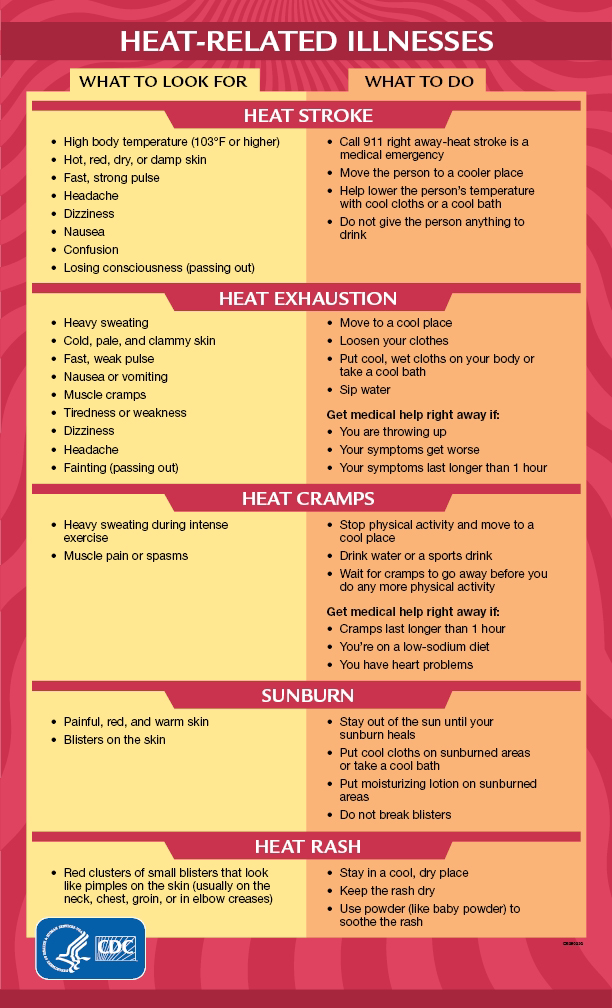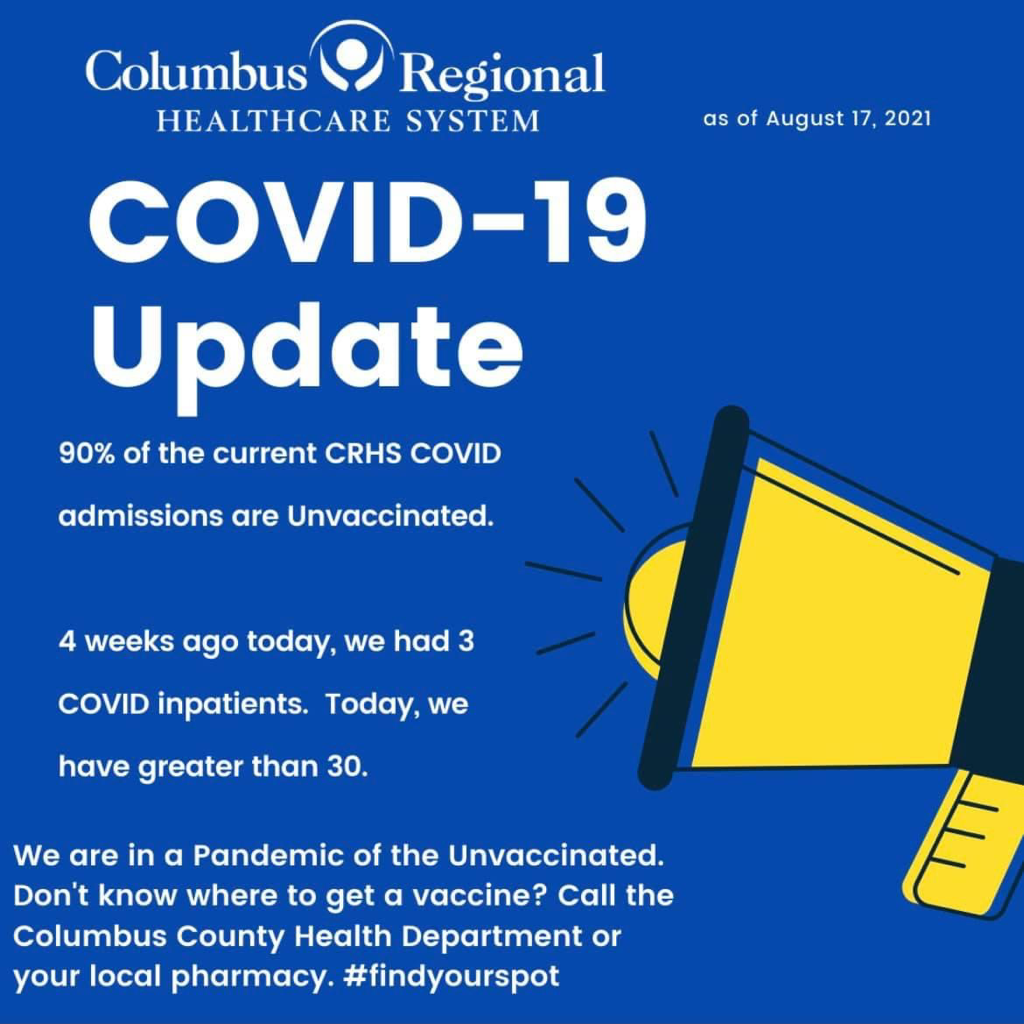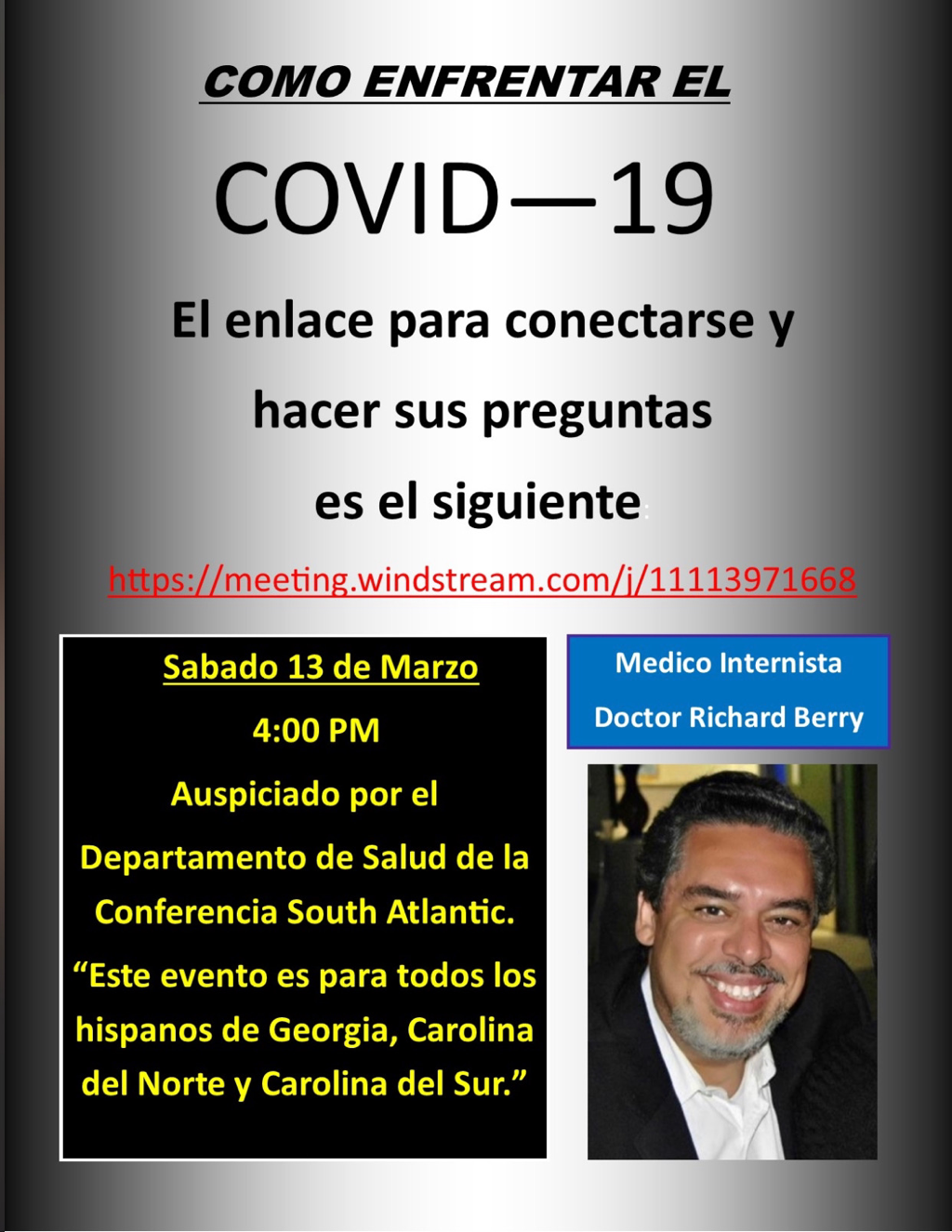|
Beginning July 1, 2022, copays for certain services that were previously eligible for $2 or $3 copays will now be a $4 copay. The change only applies to services and beneficiaries who previously were charged copays. This increase is in accordance with a statewide decision passed by the North Carolina General Assembly. We encourage all patients to visit the following link for more information and to see how this increase will affect you.
Heat-related deaths and illnesses are preventable. Despite this fact, more than 600 people in the United States are killed by extreme heat every year. The CDC has provided helpful tips, information, and resources to help you stay safe in the extreme heat this summer. Tips for Preventing Heat-Related Illness Stay Cool Stay Hydrated Stay Informed Stay Cool Wear Appropriate Clothing: Choose lightweight, light-colored, loose-fitting clothing. Stay Cool Indoors: Stay in an air-conditioned place as much as possible. If your home does not have air conditioning, go to the shopping mall or public library—even a few hours spent in air conditioning can help your body stay cooler when you go back into the heat. Call your local health department to see if there are any heat-relief shelters in your area.
Pace Yourself: Cut down on exercise during the heat. If you’re not accustomed to working or exercising in a hot environment, start slowly and pick up the pace gradually. If exertion in the heat makes your heart pound and leaves you gasping for breath, STOP all activity. Get into a cool area or into the shade, and rest, especially if you become lightheaded, confused, weak, or faint. Wear Sunscreen: Sunburn affects your body’s ability to cool down and can make you dehydrated. If you must go outdoors, protect yourself from the sun by wearing a wide-brimmed hat, sunglasses, and by putting on sunscreen of SPF 15 or higher 30 minutes prior to going out. Continue to reapply it according to the package directions.
Stay Hydrated Drink Plenty of Fluids: Drink more fluids, regardless of how active you are. Don’t wait until you’re thirsty to drink.
Stay Informed Check for Updates: Check your local news for extreme heat alerts and safety tips and to learn about any cooling shelters in your area. Know the Signs: Learn the signs and symptoms of heat-related illnesses and how to treat them (see chart below). Use a Buddy System: When working in the heat, monitor the condition of your co-workers and have someone do the same for you. Heat-induced illness can cause a person to become confused or lose consciousness. If you are 65 years of age or older, have a friend or relative call to check on you twice a day during a heat wave. If you know someone in this age group, check on them at least twice a day. Monitor Those at High Risk: Although anyone at any time can suffer from heat-related illness, some people are at greater risk than others:
For more information on this, visit CDC.GOV
Overexposure to ultraviolet (UV) rays causes most cases of melanoma, the deadliest kind of skin cancer. To lower your skin cancer risk, protect your skin from the sun and avoid indoor tanning.
Summer is full of outdoor activities. You probably put sunscreen on yourself and your kids when you go to the pool or the beach. But do you know you should protect your skin with more than just sunscreen anytime you’re outside? Sun protection is important all year round, and it’s best to use several different kinds. When you’re working in the yard, watching a ballgame, or taking an afternoon walk, make sun safety an everyday habit so you can avoid getting a sunburn and lower your chance of getting skin cancer. What’s In Your Tote Bag? Here’s a tip to help make sure you and your family stay sun-safe. Get ready for summer with a tote bag full of different ways to protect your skin. Keep the tote bag handy so you can grab it whenever you head out for summer fun! Some important things to pack:
Fast Facts About Skin Cancer:
Content source: CDC.gov, Division of Cancer Prevention and Control, Centers for Disease Control and Prevention The CDC has been collaborating with global public health and industry partners to learn about Omicron. They have stated, “as we continue to monitor its course. We are still learning about how easily it spreads, the severity of illness it causes, and how well available vaccines and medications work against it.”
Spread The Omicron variant spreads more easily than the original virus that causes COVID-19 and the Delta variant. CDC expects that anyone with Omicron infection can spread the virus to others, even if they are vaccinated or don’t have symptoms. Symptoms Persons infected with the Omicron variant can present with symptoms similar to previous variants. The presence and severity of symptoms can be affected by COVID-19 vaccination status, the presence of other health conditions, age, and history of prior infection. Severe Illness Omicron infection generally causes less severe disease than infection with prior variants. Preliminary data suggest that Omicron may cause more mild disease, although some people may still have severe disease, need hospitalization, and could die from the infection with this variant. Even if only a small percentage of people with Omicron infection need hospitalization, the large volume of cases could overwhelm the healthcare system which is why it’s important to take steps to protect yourself. Vaccines COVID-19 vaccines remain the best public health measure to protect people from COVID-19 and reduce the likelihood of new variants emerging. This includes primary series, booster shots and additional doses for those who need them. Scientists are still learning how effective COVID-19 vaccines are at preventing infection from Omicron. Current vaccines are expected to protect against severe illness, hospitalizations, and deaths due to infection with the Omicron variant. However, breakthrough infections in people who are vaccinated are likely to occur. People who are up to date with their COVID-19 vaccines and get COVID-19 are less likely to develop serious illness than those who are unvaccinated and get COVID-19. Treatments Scientists are working to determine how well existing treatments for COVID-19 work. Some, but not all, monoclonal antibody treatments remain effective against Omicron. Public health agencies work with healthcare providers to ensure that effective treatments are used appropriately to treat patients. FOR THIS AND ADDITIONAL INFORMATION PLEASE VISIT CDC.GOV Thank you for trusting your medical care to Signet Healthcare PC. Please see our Appointment Cancellation/No Show Policy below. This will be effective 10/15/2021 .
We schedule our appointments so that each patient receives the right amount of time to be seen by our physicians and staff. That is why it is very important that our patients keep scheduled appointment with us, and arrive on time. If your schedule changes and you cannot keep your appointment, please contact us so we may reschedule you, and accommodate those patients who are waiting for an appointment. As a courtesy to our office as well as to those patients who are waiting to schedule with the physician, please give us at least 24 hours notice. If you do not cancel or reschedule your appointment with at least 24 hours notice, a fee of $25 will be charged to your account. This “no-show charge” is not reimbursable by your insurance company. You will be billed directly for it. As a courtesy, when time allows, we make reminder calls for appointments. If you do not receive a reminder call or message, the above Policy will remain in effect. We understand there may be times when an unforeseen emergency occurs and you may not be able to keep your scheduled appointment. If you should experience extenuating circumstances please contact our Office Manager, who may be able to waive the No Show fee. African American Women and Breast Cancer |
|
Proudly powered by Weebly


